Sarah Chartier wasn’t always vegan. The 28-year-old Grand Rapids resident grew up in Michigan’s Upper Peninsula eating wild game and avoiding salads, which made her gag.
But all of that changed when she began to learn about the origins of her food and its impact on the environment.
Chartier, a sustainability program manager at Spectrum Health, started by eliminating meat, fish and eggs from her diet. Then, after learning about the realities of dairy production, she eliminated all milk and cheese, too.
There’s plenty of science to support a vegan lifestyle:
- Our food system is responsible for more than a quarter of all greenhouse gas emissions, according to the National Academy of Sciences.
- Animal manure, fertilizer and soil erosion are among the largest sources of water pollution in the country, according to the Environmental Protection Agency.
- Beef, cattle and sheep are given steroid hormone drugs. Although they are approved by the Food and Drug Administration, their use has raise questions for many consumers.
- Conditions on factory farms are considered cruel by some as animals are stuffed into tight cages to increase production.
Last fall, there was even a push by the Dietary Guidelines Advisory Committee—a group of nationally recognized experts in nutrition, medicine and public health—to change the federal dietary guidelines to be more plant-based for sustainability reasons. This earth-friendly proposal did not make it to the final recommendations.
“A plant-based diet is a surefire way to reduce our overall impact on the environment, and it’s one of the most impactful things we can do as individuals,” Chartier said. “We vote with our fork three times a day.”
‘Nothing with a mom or dad’
Chartier says becoming vegan, with no food from animal sources, changed her perspective on eating and cooking.
Fortunately, her taste buds have adapted—she no longer gags on salad. Instead:
- Her diet follows the seasons. She eats local produce when available, as well as plenty of beans, rice and legumes all year around.
- Mornings often begin with a smoothie, which she concocts with kale, other vegetables and a little fruit for sweetness.
- She experiments with unfamiliar foods like tempeh, a fermented soy product that’s high in protein.
- For cooking inspiration she turns to the web. Her favorite recipe sites are Oh She Glows and Kris Carr.
- Her favorite restaurants are Indian, Thai, Chinese and Mediterranean, which offer plenty of vegan options.
- She brings a vegan salad to share at potlucks and, when necessary, brings her own food to dinner parties.
- Although her husband isn’t vegan, he’s willing to eat and cook vegan recipes (although he may sneak a little cheese into his portion).
A balanced diet
A vegan diet can be healthy, according to Jessica Corwin, MPH, RDN, community nutrition educator for Spectrum Health Healthier Communities.
On the other hand, not all vegans eat healthy: Some rely too much on processed foods.
Simple Cauliflower Buffalo Wings
One of Sarah Chartier’s favorite recipes is a vegan riff on an old favorite: Buffalo Wings.
1 head cauliflower broken into bite-size “wings”
½ cup flour
½ cup water
Spices of your choice (garlic powder, paprika, cayenne, etc.)
Buffalo sauce or hot sauceCombine flour, water and spices to create a batter. Dip wings into batter, and then spread them on a lightly greased baking sheet. Bake at 450 degrees for 10-20 minutes. Top the wings with your favorite buffalo sauce or hot sauce, then bake an additional 10 minutes.
Serve with peanut sauce or ranch dressing.
“You can go to the health food store and find lots of junk food that’s loaded with salt and sugar,” Corwin warns.
Worried about protein? She says it’s available in plenty of other foods, including whole grain bread, soy foods (edamame, tempeh, tofu, soy milk, nuts or beans), seeds, fruits and vegetables.
According to Corwin, some vegans (and the rest of us) struggle to get enough vitamin B12, vitamin D and omega 3 fats into their diet.
Food can offer the answer. For example, flax seeds, chia seeds and walnuts have omega 3. But taking supplements can ensure no important nutrients are missed.
Reaping the health rewards
Chartier feels better than ever. She lost 10 to 15 pounds when she switched to a plant-based diet. She monitors her health through annual blood tests.
And she has plenty of energy. Her daily routine includes an hour-long walk with her rescue beagle, Charlie.
Chances are she’ll stay healthy, too. According to the National Institutes of Health, a vegan or vegetarian diet can help prevent cardiovascular disease, hypertension, diabetes, cancer, osteoporosis, renal disease, dementia, gallstones and rheumatoid arthritis.
Baby steps
If you’re curious about changing your diet but not ready to commit, consider going meat-free one day a week.
“Some people are pretty intimidated by the idea of going vegan,” Corwin said. “Check out meatlessmonday.com. It helps you dip your toes in the water with recipes that are practical.”
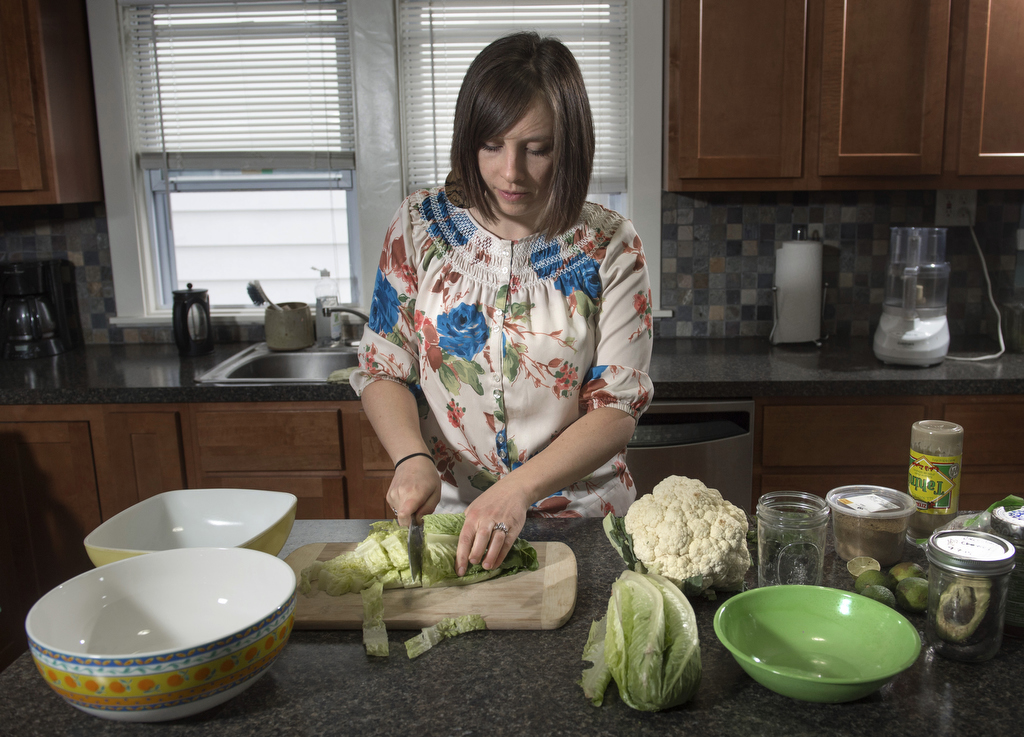
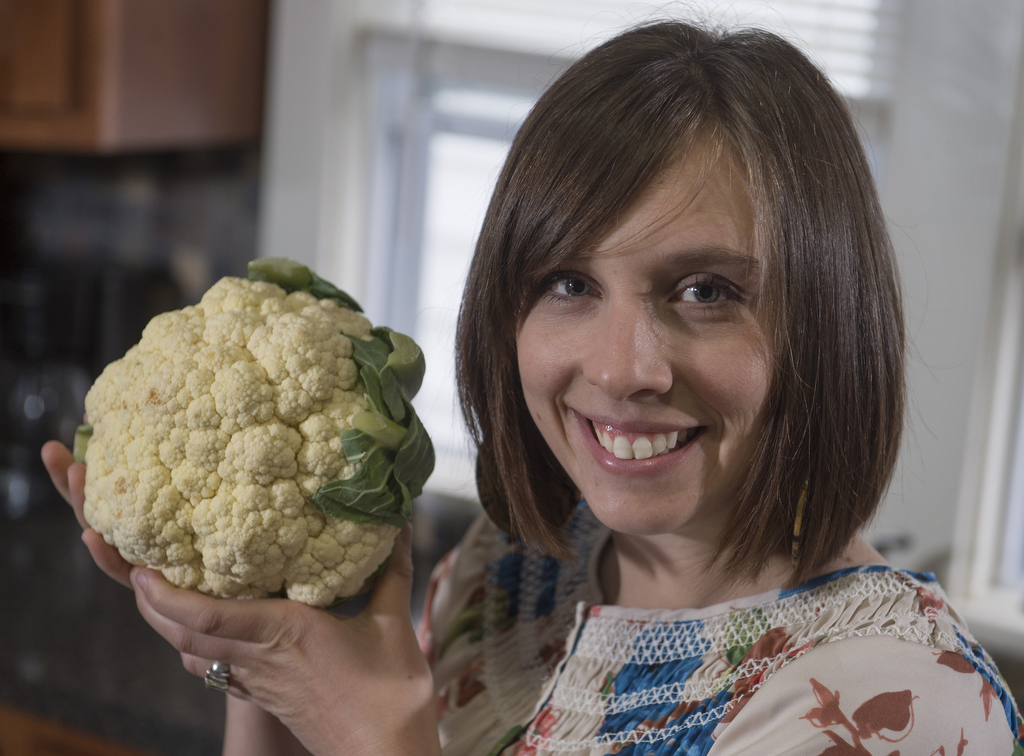
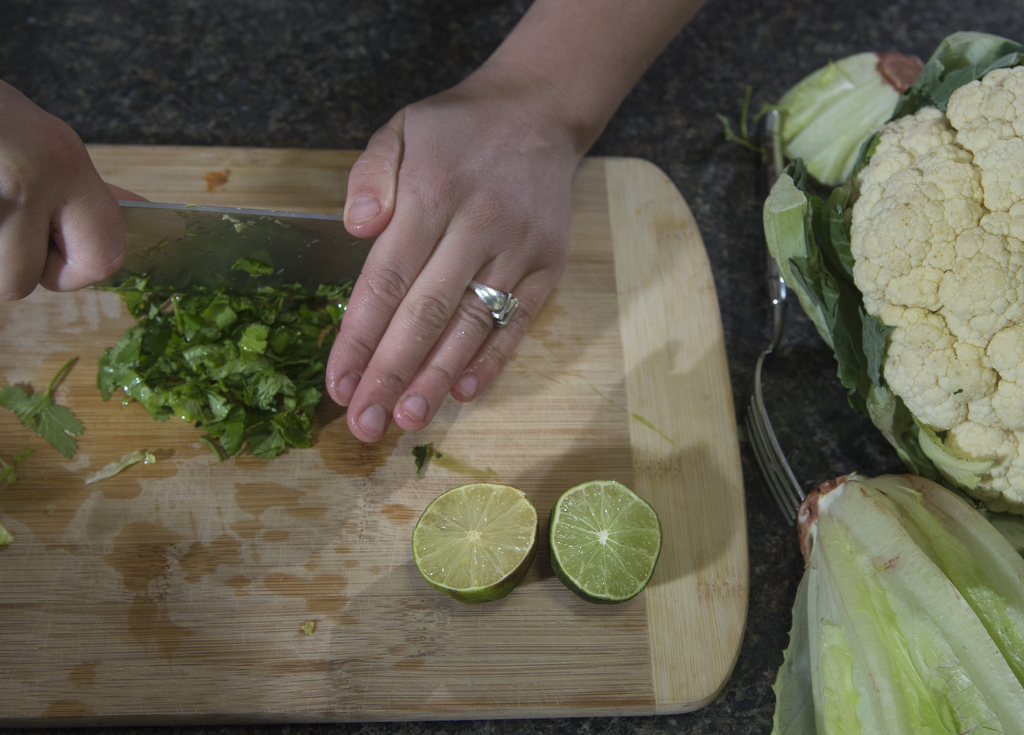
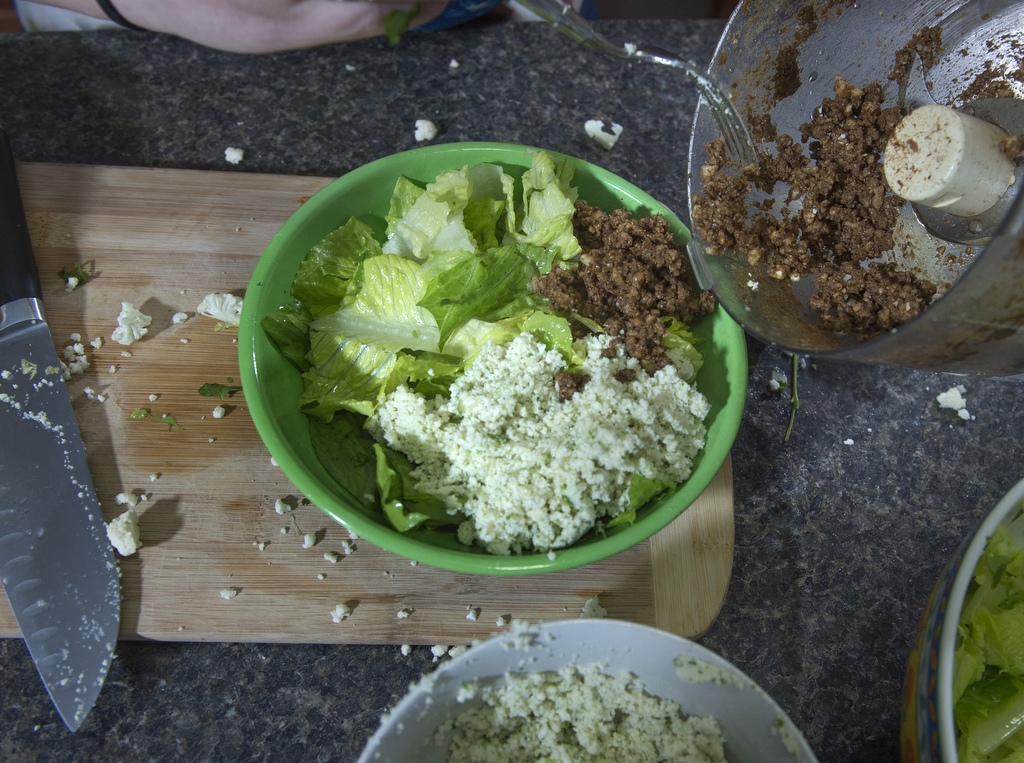
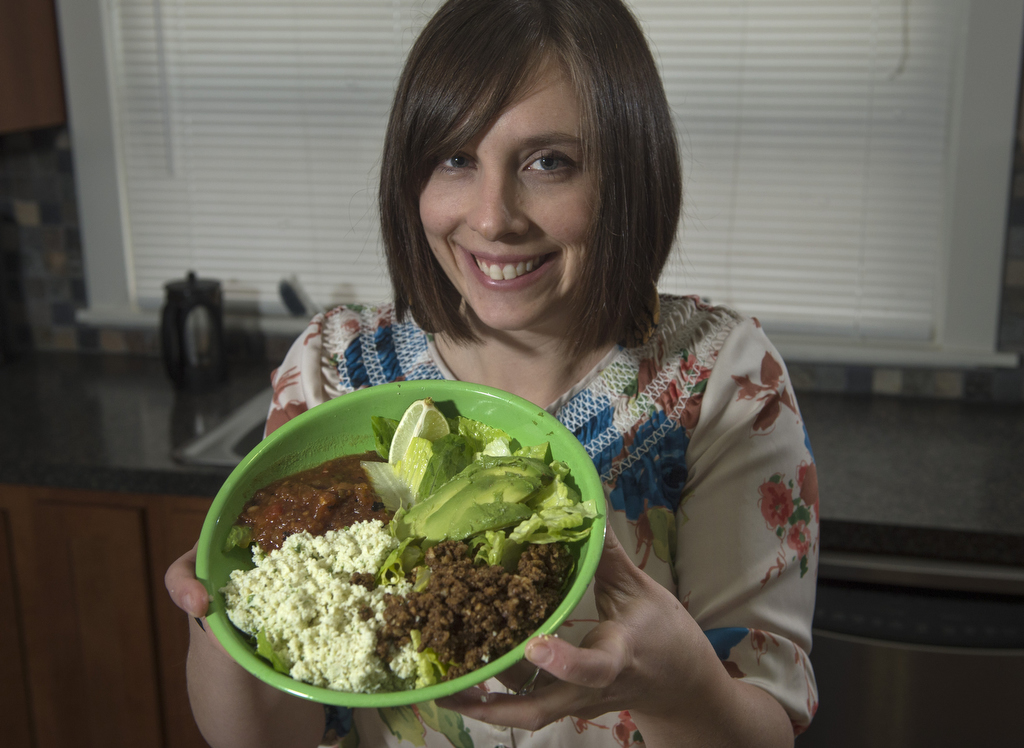
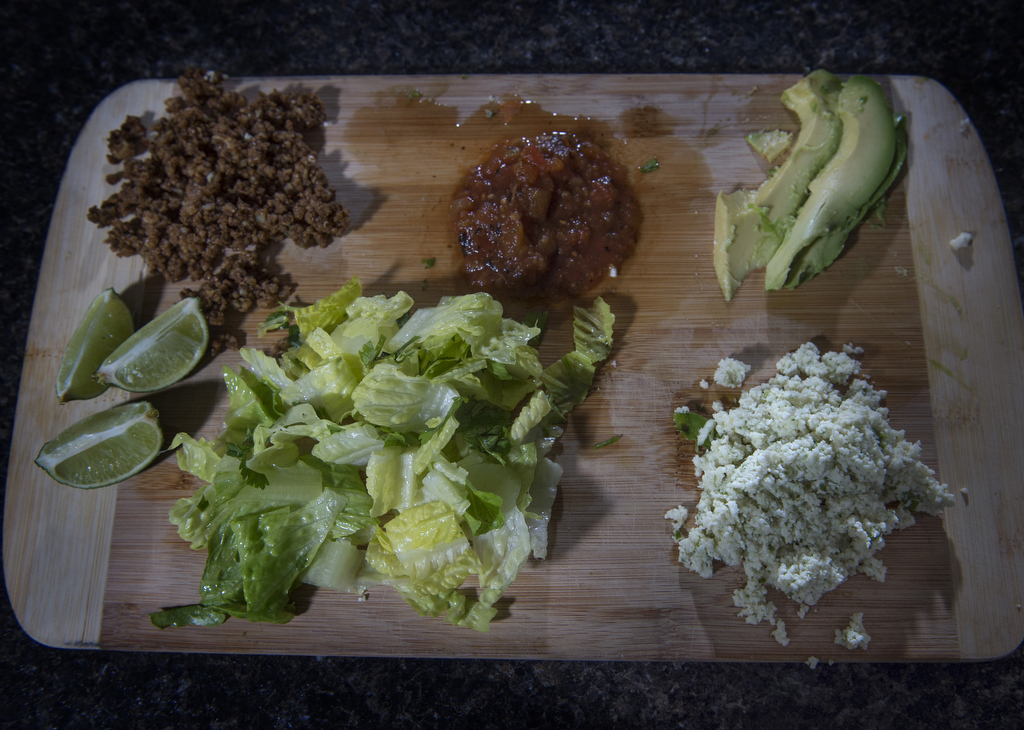


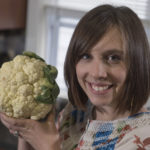

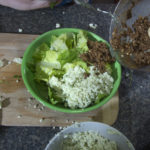
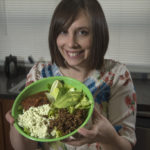
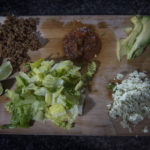

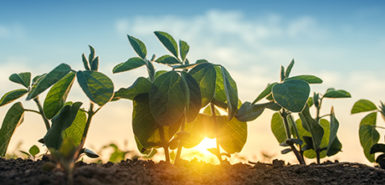 /a>
/a>
 /a>
/a>
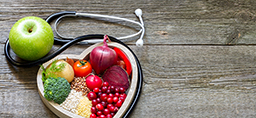 /a>
/a>